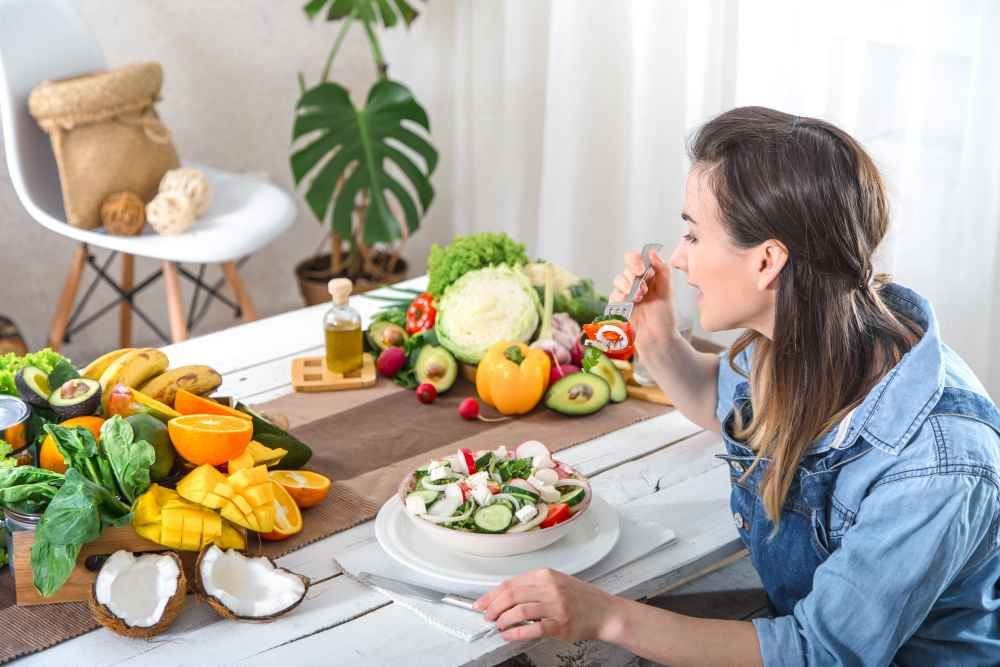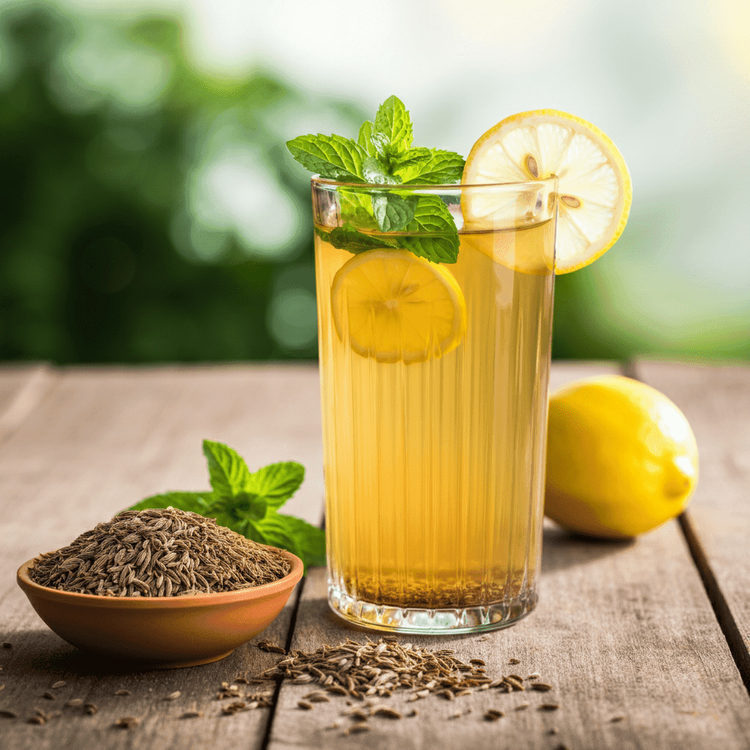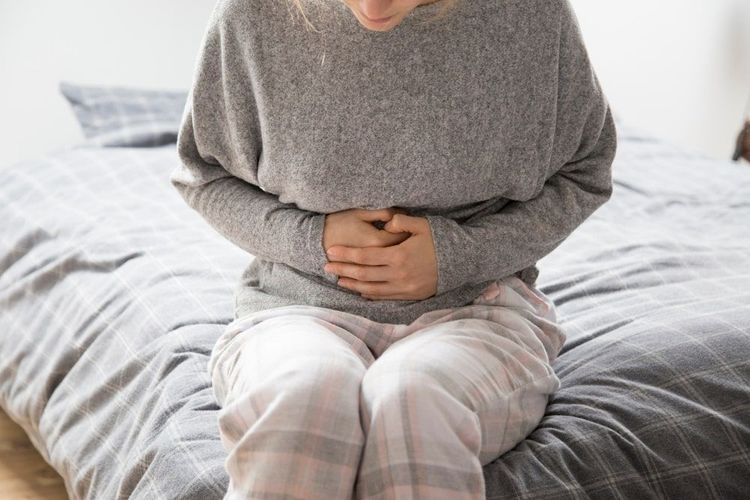Do you often experience bloating, gas, constipation, or stomach pain in your daily life? These are signs that your digestion may not be functioning at its best. Are you looking for ways to improve your digestion without having to rely on expensive medication?
Well, poor digestion is a common problem that affects millions of people all over the world. Luckily, there are several simple and effective ways that you can improve your digestion at home. And today I'm going to discuss some of the most effective methods that you can easily incorporate into your daily routine.
Yes, there is no need for expensive medications or drastic changes in your lifestyle. With a few simple steps, you can improve your digestion and get rid of stomach discomfort and digestive problems.
Let's first talk about the cause that leads to digestive problems.
Related Reading: Morning Routine to Boost Metabolism: Start Your Day Off Right
Causes of Poor Digestion
Several factors can contribute to poor digestion. Some frequent causes include:
- Unhealthy Diet
- Stress
- Lack of Physical Activity
- Dehydration
- Imbalance in Gut Bacteria
- Food Intolerances or Allergies
- Medications
- Smoking and Alcohol Consumption
While these factors may seem common in our daily lives, they can have a significant impact on our digestive health. if you are experiencing any digestive issues, it is essential to evaluate these factors and make necessary changes to improve your overall digestive health.
Effective Ways to Improve Digestion at Home
There are several simple and effective ways to improve digestion at home, which can help alleviate uncomfortable symptoms and promote better overall health. These include:
Eating a Nourishing and Balanced Diet

One of the most important ways to support good digestion is by eating a nourishing and balanced diet. Many foods can help improve digestion, such as:
Fiber-rich foods:
Fiber is crucial for maintaining healthy digestion as it helps to move waste through the digestive system. Not having enough fiber in your diet can cause constipation and other digestive problems.
Here’s a list of fiber-rich foods to easily add to your diet :
Food
Type of Fiber
Benefits
Oats
Soluble Fiber
Helps lower cholesterol levels.
Lentils
Insoluble Fiber
Promotes regular bowel movements.
Apples
Soluble Fiber
Supports gut health and regulates sugar.
Broccoli
Insoluble Fiber
Aids in adding bulk to stools.
Chia Seeds
Soluble Fiber
Improves digestion and hydration.
Sweet Potatoes
Insoluble Fiber
Helps prevent constipation.
Almonds
Insoluble Fiber
Encourages gut motility.
Raspberries
Soluble & Insoluble
Combines the benefits of both fiber types.
Probiotic-rich foods and drinks:
Probiotics are good bacteria that help keep your gut balanced and support digestion. Consuming probiotic-rich foods and drinks can help improve digestion and overall gut health. Some popular probiotic-rich options include:
- Yogurt
- Kefir
- Kimchi
- Sauerkraut
- Kombucha
- Miso
- Tempeh
Lean proteins:
Protein is essential for gut health as it helps in the repair and maintenance of gut tissue. Lean proteins are easier for you to digest than fatty meats, making them a better option for promoting gut health. Some lean protein options that you should include in your diet are
- Chicken breast
- Turkey breast
- Fish (salmon, tuna, cod)
- Eggs
- Lentils
- Tofu
- Beans
Healthy Fats:
Healthy fats are crucial for gut health as they help in reducing inflammation and supporting the growth of good bacteria in your digestive tract. The top sources of nutritious, healthy fats include:
- Avocados
- Olive oil
- Coconut oil
- Nuts (almonds, walnuts, cashews)
- Salmon
- Flaxseeds
Incorporating these healthy fats into your diet can improve the balance of good bacteria in your gut and reduce the risk of digestive issues. Additionally, they also provide important nutrients like omega-3 fatty acids, which are essential for brain health and overall well-being.
Avoid long gaps between meals, and establish a consistent eating schedule to keep your digestive system functioning properly. Skipping meals or eating irregularly can disrupt the natural rhythm of your gut and cause discomfort. Instead, try to plan meals and snacks ahead of time so you can have a variety of nutritious options available throughout the day. So, listen to your body and fuel it with a balanced, nutrient-rich diet.
Eating Too Quickly

When you eat too quickly, your body doesn't have enough time to properly break down and absorb the nutrients from your food. This can lead to digestive discomfort and bloating, as well as nutrient deficiencies.
To slow down your eating, I’d suggest giving mindful eating a try. This includes focusing on your food while eating, chewing slowly and thoroughly, and taking short breaks between bites. This will not only improve digestion but also allow you to truly savor and enjoy your food.
Managing Stress

Stress is a major factor that can affect our digestion. When you're stressed, your body releases hormones that can slow down digestion and even cause digestive problems like constipation or diarrhea. Therefore, it's important to find ways to manage stress to maintain a healthy digestive system.
Some strategies to try include exercise, meditation, deep breathing, spending time in nature, or talking to a trusted friend or therapist. It's also important to make time for self-care activities and prioritize tasks to avoid feeling overwhelmed.
Staying Hydrated

Drinking enough water throughout the day is vital for maintaining proper digestion. Dehydration can lead to constipation and make it difficult for waste to pass through the digestive tract. Drink at least 8 glasses of water daily, though individual needs may vary based on factors like activity level and personal hydration requirements.
In addition to drinking plain water, you can also incorporate herbal teas, coconut water, and infused water with fruits and vegetables for added flavor and nutrients. Avoid sugary drinks like soda or juice as they can cause bloating and disrupt the balance of good bacteria in your gut.
Practice Good Bathroom Habits
Practice good bathroom habits to prevent and alleviate constipation. This includes not ignoring the urge to go, as holding in bowel movements can cause stool to become dry and difficult to pass. It is also important to have a consistent bathroom routine, aiming to go at the same time each day.
I saw many cases where people tend to hold their bowel movements for various reasons, such as being too busy or embarrassed to use public restrooms. However, this can lead to constipation and other digestive issues in the long run. So, it is important to prioritize bathroom breaks and not ignore the body's natural cues.
Physical Activity
Last but not least, incorporating regular physical activity into your daily routine can also help improve digestion. Exercise helps to stimulate the muscles in your digestive system, promoting regular bowel movements and reducing symptoms of constipation.
Additionally, being physically active can also reduce stress levels, which can have a negative impact on digestion.
Doing activities like yoga, walking, or even just some simple stretches can help with digestion by boosting blood flow to your organs and promoting relaxation. It is recommended to engage in at least 30 minutes of physical activity each day for optimal digestive health.
When should you see a doctor to improve digestion?
While following a healthy diet and lifestyle can greatly improve digestion, there are certain scenarios where seeking medical help may be necessary. Here are some signs that you may need to see a doctor to improve your digestion:
- Persistent digestive issues: If you are experiencing frequent digestive problems, such as heartburn, bloating, diarrhea, or constipation, it is important to consult a doctor. These could be signs of an underlying condition that may require medical treatment.
- Blood in stool: Seeing blood in your stool is not normal and should be evaluated by a doctor. It could be a sign of hemorrhoids or an inflammatory bowel condition.
- Changes in bowel habits: If you notice a sudden change in your bowel movements, such as increased frequency or difficulty passing stool, it could indicate a digestive problem.
- Chronic fatigue: Constantly feeling fatigued can be a sign of an underlying digestive issue. This is because your body may not be absorbing the necessary nutrients from food due to digestive problems.
- Nausea and vomiting: Frequent bouts of nausea and vomiting could be a sign of an infection or inflammation in the digestive tract.
- Unexplained weight loss: Yes, weight loss can be a sign of digestive problems as well. This is because your body may not be able to properly digest and absorb the nutrients from food, leading to unintentional weight loss.
Conclusion
Improving digestion at home often starts with adopting healthy lifestyle changes and eating habits. By incorporating these tips, you can help prevent and relieve digestive problems.
However, if these methods do not provide relief or if you are experiencing persistent symptoms, it is important to consult a healthcare professional for further diagnosis and treatment. Listen to your body and make adjustments as needed to find what works best for you to improve your digestion.
Read More: How to Reduce Noise for Better Sleep
Frequently Asked Questions
How can I reduce bloating naturally?
Eating smaller meals, chewing your food thoroughly, avoiding carbonated drinks, and limiting high-sodium and processed foods can help reduce bloating.
Are there any natural remedies for improving digestion?
Yes, Ginger, peppermint tea, and apple cider vinegar in moderation are popular natural remedies that may aid digestion. However, consult with a healthcare provider before trying any solution if you have specific health conditions. Additionally, staying hydrated and eating a high-fiber diet can also improve digestion.
What foods should I avoid for better digestion?
To avoid digestive issues, limit consumption of processed foods, sugary beverages, fried foods, and excessive caffeine. These can irritate your digestive system and lead to discomfort.




